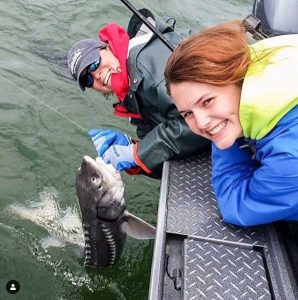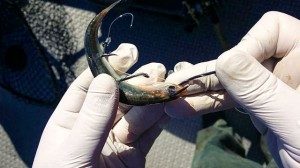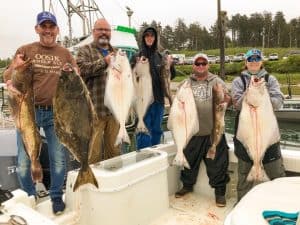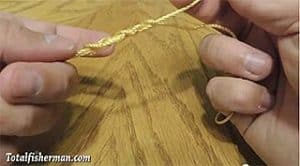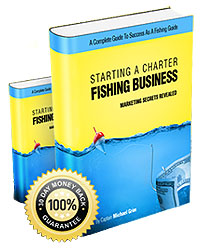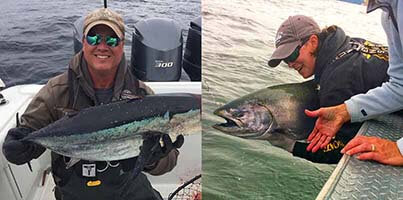Check out our Astoria Fishing Charters and Washington Halibut Charters
 Interested in becoming a fishing guide?
Interested in becoming a fishing guide?
This article talks about some of the requirements and things you should consider before making your leap.
The process for becoming a fishing guide is complex in many states, with a variety of requirements, but in other states it can be very easy with only a few steps that need to be followed.
First you’re going to need get you captains license and for that you will need to study.
One of the biggest and most important achievements to transition from being a fisherman to becoming a fishing guide and captain is to obtain your Coast Guard License, i.e. Merchant Mariner Credentials. If you’re taking paying customers on a motorized boat on “federally navigable waterways” you will need a Merchant Mariner License.
For the Coast Guard’s Thirteenth District Navigable Waterways List (WA, OR, ID, MT)
Click here: http://www.uscg.mil/d13/docs/cg_Navigable_Waterways.pdf
The minimum MMC (Merchant Mariner Credential) that a guide must have to operate a power vessel for hire, is an OUPV or Operator of Uninspected Passenger Vessel, also known as a “Six Pack License” because you’re allowed to operate a boat and take six paying passengers.
There are three areas of operation that are available for the OUPV license. Inland, Near Coastal & Great Lakes. For all of these licenses 90 days of the 360 days of documented experience needs to be in the last three years. The Coast Guard measures a day as eight hours of on the water time.
Inland: All inland waters of the U.S. To qualify for an Inland route the applicant needs to document 360 days of qualifying sea service experience in the operation of vessels.
Near Coastal: Includes all inland waters of the US and all near coastal ocean waters within 100 miles of shore. To qualify for a Near Coastal route the applicant needs to document 360 days of qualifying sea service experience in the operation of vessels; 90 days of the qualifying experience must have been on ocean waters.
Great Lakes: 360 days deck service including 90 days service on Great Lakes.
If the answer is no, “you don’t plan on taking customers in a power boat on navigable waters”, then you don’t need to worry about the testing process required by the U.S. Coast Guard. You only need to satisfy your state’s requirements, which depending on where you plan on guiding may also include requirements from agencies such as the Bureau of Land Management.
Required and not required.
Different states have different requirements, some like Oregon are very good at making sure guides/charters have insurance, CPR/First Aid, and maintain their Coast Guard Licensing. Other states such as Washington say that the guide should have these things but don’t actually check or enforce such requirements.
In any event it is important for the guide to be clearly qualified for the duties of being a fishing guide. A great deal is riding on the guides ability to keep the customers safe, so whether required by the state or not, every guide should at a minimum be CPR/First Aid qualified, Coast Guard licensed and carry one million dollars or more of insurance for their business.
Another part of the minimum qualifications for being a guide is to not only being able to catch fish, but also being able to patiently instruct their clients on how to catch fish. Just because a person can catch fish doesn’t mean they are capable of being a guide and a good teacher. Being a good guide requires patience, the ability to explain things multiple ways, insight, and being excited about fishing. These are all things that a guide should have in the beginning and throughout their career.
Before entering the guide business, the prospective guide should have a good grasp on how they plan on growing their business as well as for how they plan on retaining the customers they acquire.
How are you planning on growing your business? You should have all of the steps laid out for growing your business before you go into business, it should be a part of your business plan. Remember having a successful and growing business is important to keeping you on the water all the time.
Most fishermen have mastered the mechanics of fishing, but it’s being on the water the majority of the time that really gives the guide his edge above most anglers. If your business is lacking in one area or another and it’s keeping you from being on the water, you’re going to see a decline in your abilities, it’s a downward spiral.
There’s a reason that guides who are on the water all the time, seem to catch the most fish, and have the most customers. It’s because they are on the water all the time, seeing what the fish are doing, and taking care of their customers! As a new guide you need to find a way to get there and stay there. If you can find a way to be on the water all the time, with customers in your boat, everything else in this business becomes very easy.
A full time guide’s perspective.
Being a fishing guide is one of those careers that qualifies as a “lifestyle job”. I believe most people would prefer a lifestyle where they get paid to do something that they truly love or is considered a hobby, but most don’t get the opportunity or just can’t make it happen. Getting paid to do this and being successful at it is something very special, and I definitely don’t take it for granted.
I think some would see this job as being somewhat glamorous or prestigious, which is maybe why we see some new fishing guides with what seems to be a little bit of arrogance or a chip on their shoulder. Remember the title says guide not god. You’re still just another guy with a rod in his hand running a boat. Fellow fishermen, guides, and your customers expect you to be friendlier, professional, courteous, and to give back more than you take, especially when you’re starting out. First impressions are lasting impressions.
Some of my fellow fishing guides have been guiding as long as I’ve been alive! I used to be one of the “young guides” out on the river but now there are quite a few that are younger than me. What I’ve noticed in the … going on 11 years … that I’ve been guiding, is that the folks that have lasted in this industry are the ones that have a great attitude and are friendly to everyone.
Staying power, the ability to weather the ups and downs of fish runs, the economy, and everything else, seems to be handled easily by these individuals. The guides that are high strung, arrogant, cocky, talk about how great they are, have no time for anyone else, drive their boat like an ass, tell their customers how great they are but how bad everyone else is … you get the point. These guys always struggle and just can’t make a career out of this, they come and go.
Remember, modesty goes a long way; nice guys get noticed and truly do finish first in this profession.
As much as you want everything to happen over night, i.e. tons of customers, reputation, sponsorships, etc none of this happens immediately. You need to put in your time, if it’s worth getting it’s worth working for and maybe having to wait for.
For more information on USCG licensing requirements you can go here: http://www.uscg.mil/nmc/mariner_information_center.asp
The author, Kevin Newell, and his wife Lacey DeWeert are professional fishing guides in Oregon and Washington!
